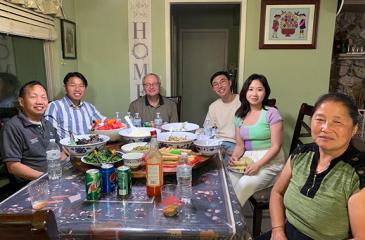Research from University of Minnesota’s Robert Straka, PharmD, FCCP, found significant differences in how efficiently medications are metabolized by members of Minnesota's Hmong community compared to other populations, suggesting that the Hmong may be better served with different dosages or even different medications.
He sought to validate these findings in another Hmong community, which he successfully did with the help of pharmacy student and CTSI Advanced Pathways to Research Program (A-PReP) scholar Tou Thao.
Thao’s connections, community know-how, and research savvy helped Dr. Straka surmount one of the study’s biggest challenges: building new relationships in California, a state he didn't live in. “Validation of our findings could potentially help Hmong people everywhere,” explains Dr. Straka, who heads the Department of Experimental and Clinical Pharmacology (ECP) at the University of Minnesota, Twin Cities:
“If our research shows that the patterns we saw in Minnesota hold true elsewhere, then we can be more confident about the dosages and medications we’re recommending for individuals identifying as Hmong regardless of their residence. There’s tremendous potential to improve health outcomes and save lives by acknowledging the unique factors of this community.”
From community interests to research questions
The study is part of the growing research field of pharmacogenomics, which investigates how different people metabolize or process medicines differently based on their genetics.
Before Straka’s research, there was precious little recorded genetic data on the Hmong. His research focus was informed by long-standing concerns within the Hmong community about some medications not being as effective for them.
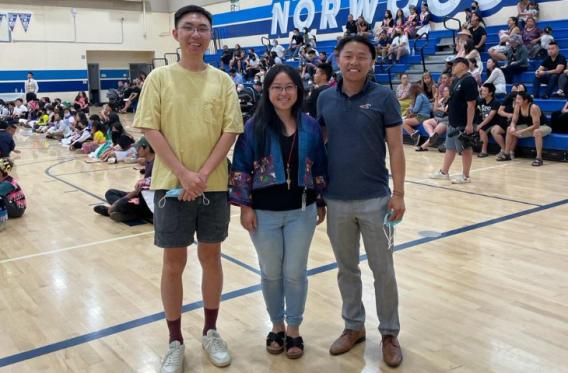
"We integrated research questions with community interests," explains Dr. Straka. "In doing so, we developed a partnership between the community and scientific body, to listen to them and partner with them."
While many drugs are regarded as “one size fits all,” he says, in reality, they don't work the same for everyone.
Analyzing genes in populations can help predict who will benefit from a medication, who won’t respond at all, and who will experience negative side effects or adverse drug reactions. Adverse reactions to medicines contribute to a significant number of hospitalizations and deaths in the United States—so the stakes couldn't be higher.
It is unclear exactly why members of the Hmong exhibit differences in the prevalence of genetic variations that influence drug metabolism compared to other subpopulations of East Asians. Possibilities range from their unique societal structure and/or geo-ancestral differences which may have arisen over long periods of time.
The work of Dr. Straka and Thou highlights differences between Hmong and other East Asian populations and underscores the inadequacy of racial constructs and classifications. Instead, the research supports the value of personalized medicine that takes into account an individual’s genetic makeup rather than that of a defined subpopulation.
Hands-on research
Thao was just starting his studies as a pharmacy student at the University of Minnesota Duluth when he met the renowned pharmacy researcher.
"Meeting Dr. Straka and learning more about the research he was doing really inspired me," says Thao.
Dr. Straka encouraged him to apply to CTSI’s Advanced Pathways to Research Program (A-PReP), a summer program that trains doctoral students in translational research and applied career development skills and gives them the opportunity to conduct research alongside a faculty mentor.
Through the CTSI program, Thao had the unique opportunity to get hands-on research experience under the guidance and mentorship of Dr. Straka, who’s the 2022 recipient of CTSI’s Mentor of the Year award.
Thao became essential to Dr. Straka’s research efforts, helping make key connections in Fresno, California, which is coincidentally both Thao’s hometown and where Dr. Straka sought to conduct the study, based on a large Hmong community there.
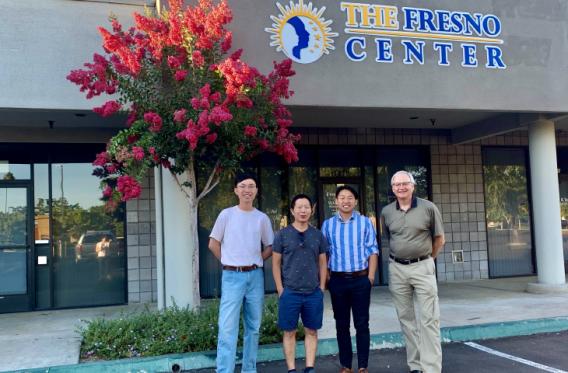
A rousing recruitment success
Together, they worked to find people of Hmong descent in California who’d be willing to provide saliva samples. A DNA analysis of the samples would help the study team better understand how participants respond to medications and could someday help doctors make informed decisions regarding drug selection and dose for people of Hmong ancestry. Such information may create more successful therapeutic outcomes for the Hmong.
"I reached out to local nonprofits I had worked with in the past to form relationships between Dr. Straka's lab and the local community,” explains Thao. “Most of them were excited to learn about the research and participate."
Study recruitment was such a rousing success that they even had to turn some people away.
“If I went out there alone without Tou's connections or help recruiting participants, I never would have been as successful,” says Dr. Straka.
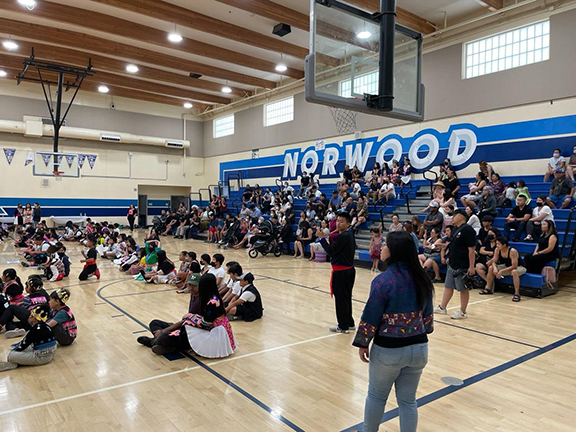
Critical translations
Thao also helped translate crucial consent forms into Hmong.
"In order to ethically recruit people, we needed a Hmong version of the consent forms," says Dr. Straka. "Tou singlehandedly did the majority of the translation."
Thao says the translation was challenging. He read other Hmong translations to guide him and also leaned on his family, particularly his father, who works in the medical field.
"There's a Thai word that the Hmong community uses for 'allergies,' but I wasn't comfortable using it," he says. "I wanted to see if there's a better phrase to capture what I was looking for. I was doing a lot of research to find the right word, but I felt like the meaning wasn't captured. I finally reached out to my dad, who offered a short phrase I ended up using."
A research career springboard
The A-PReP Scholars program was invaluable to Thao:
“I loved the hands-on research experience I got through the A-PReP program,” says Thao. “Plus, there are skills-based seminars and all the benefits of being part of a small cohort of students who want to share experiences and learn from each other. It’s been so valuable for my career and my future."
In the seminars, Thao learned more about community-based participatory research and how to present his own research effectively. He also gained insights on dealing with the pressures of research.
"I was having difficulty translating the data we had and feeling a bit overwhelmed. I went to a workshop that really grounded me again. It reminded me that these problems are not unique and that, while research is difficult, there is a light at the end of the tunnel.”
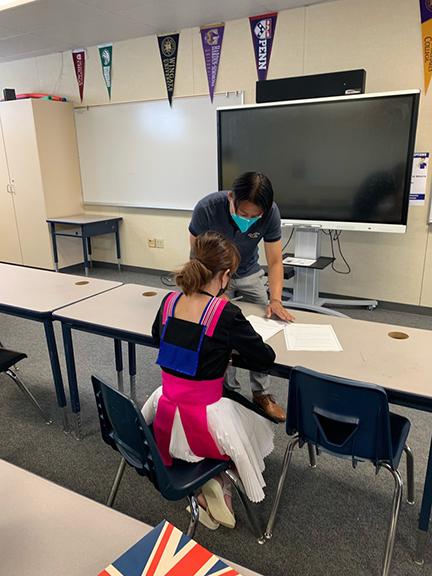
Finding greater meaning
Straka says Thao exemplifies why it’s important to have a diverse pipeline of researchers.
“People like Tou help open our minds to a vast array of perspectives and expand what’s possible. Training scientists who can one day lead research in their own communities has enormous potential to make a difference.”
Thao discovered this potential as well:
“It’s so important to find answers to the questions we already have. Yet in the Hmong community I’m part of, there hasn’t been a lot of pharmacy-related research. That’s a big part of what made my CTSI research experience so rewarding, both personally and professionally.”
